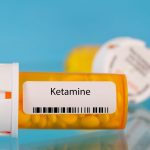
A variety of risks can make it more likely that someone develops Alzheimer’s disease or other dementias. Now you can add neighborhood environment to that list. A new study finds low income levels and a lack of green spaces are among the factors that can harm brain health. “Social determinants of health have a major impact on cognition, as well as cardiovascular and cerebrovascular health,” said lead author Lilah Besser. She’s a research assistant professor of neurology at the University of Miami Miller School of Medicine’s Comprehensive Center for Brain Health. “Understanding these interactions is crucial in developing interventions to improve brain health in individuals living in disadvantaged neighborhoods,” Besser explained in a university news release. Past research has shown that a type of brain damage known as white matter hyperintensities has been linked to higher risks of Alzheimer’s disease and dementias, as well as stroke. Other studies have found an increased risk of dementia in lower socioeconomic neighborhoods. This study built on that, using MRIs of 1,260 people. The participants were cognitively normal and age 65 or older. Scans were taken approximately five years apart. The researchers measured changes in white matter hyperintensities and brain ventricle size. They also assessed associations between neighborhood green space, neighborhood income and the MRI scans. “We found that white matter worsening was more likely for individuals in lower… read on > read on >






















-300x200.jpg)













